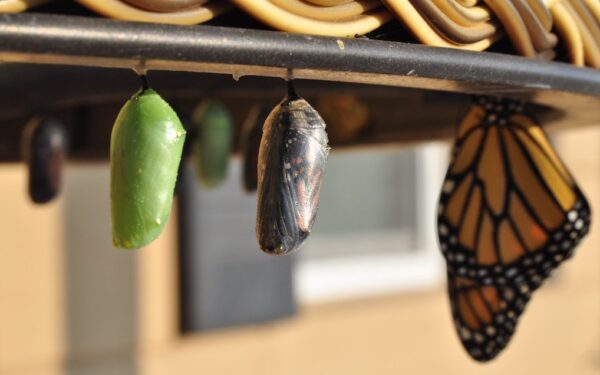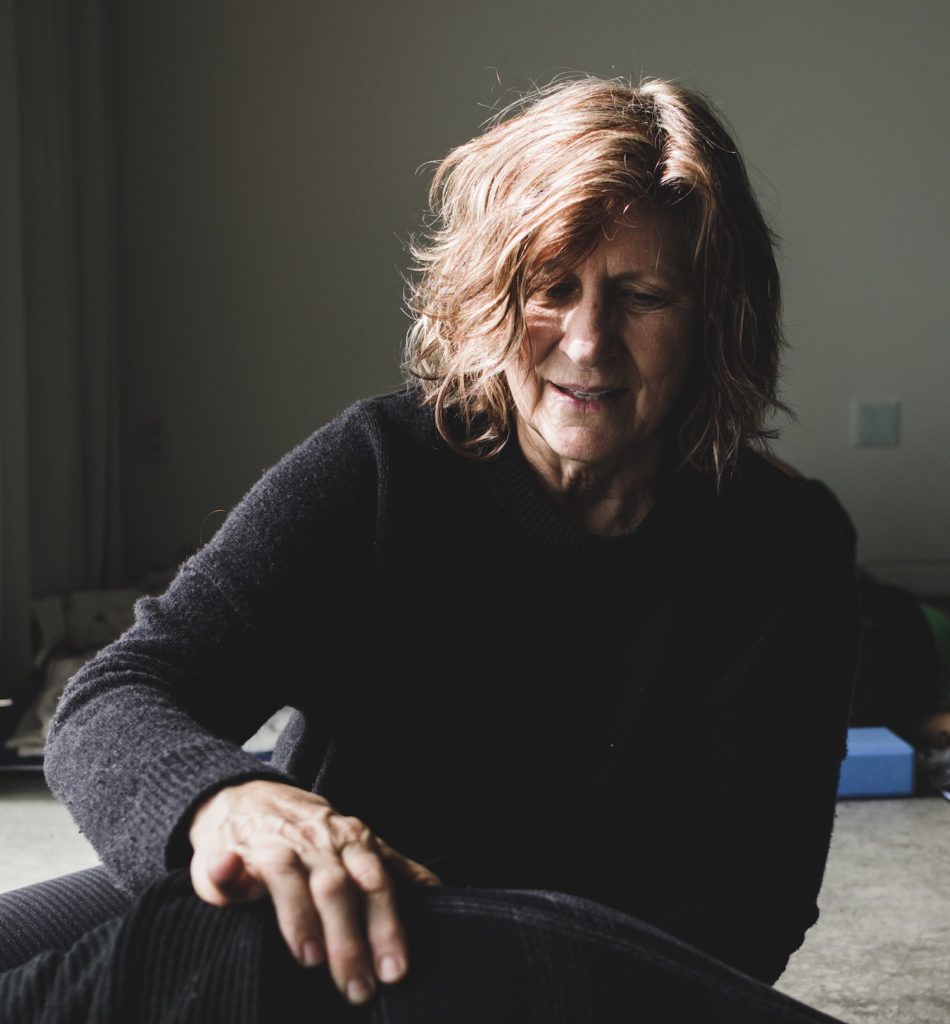
Migrating, adapting, transforming are natural processes of being alive. Turmoil: something every species experiences. From galaxies to quarks all living and nonliving forms change. What if disruption, devastation and even suffering are simply a natural part of planetary change? Is there anything to be gained from questioning human life in the context of such a dynamic perspective? Can it help make sense of what we feel, think and perceive while going through such tremendous personal and community loss and upheaval? Can our human consciousness be transformed through random acts of trauma?
WHAT’S THE POINT?
No one knowingly invites trauma into their life. Humans like excitement for sure and for some the rush of fear may be absolutely pleasurable. Just hang out with a group of fourteen year old and you’ll discover that the thrill of fear and mastering its biological and emotional aspects is a necessary life task. In the animal world PLAY is imperative and as vital as finding food and shelter. Play is how animals master their fear response, experience pleasure, bond with each other and hone appropriate life responses. Being taken by surprise, wrestling, surrendering, running, leaping, attacking, hiding are all aspects of play. From the looks of it, readying for trauma is coded into our animal genetic makeup.
SURVIVING TRAUMA
If enduring change is within living bio-structures, surviving trauma just may have a larger purpose for our species. Recovering from trauma may be a human quest. Species that can not or do not adapt to their specific traumatic experience simply become extinct. This bio-intelligent imperative assures us that we humans can and must overcome our reaction to disaster. If the tools for recovery exist within our biological coding, what role does resiliency play in not only surviving disaster but learning from it? Can the nature of trauma actually drive our capacity for becoming wiser human beings?
UPHEAVAL: A NATURAL PART OF LIFE
When a sprouting seed begins its journey through the earth its expression changes the course of billions of microbes and organisms. The Butterfly Effect is the name given the idea that our sensitive dependence as a species is profoundly effected by small variations of a dynamic changing system, which produces larger variations in the long term behavior of the system. If this theory is correct scientist Edward Lorenz suggests “one flap of a seagull’s wings would be enough to alter the course of the weather forever” To our four billion year old earth consciousness, large shifts such as volcanoes, earthquakes, tornadoes, hurricanes, tsunamis all create great change, but what about our small personal explorations? How might they profoundly change the dynamics of life? If this idea has a grain of truth what does it tell each of us, working with our own personal upheavals, about how we can dynamically shift the consciousness of humanity as a whole?
TRAUMA’S GIFTS
By unveiling the fragility, precariousness and vulnerability of our humanity, trauma powerfully exposes us to the rawness of life as a living species. It seems impossible to stop such tragedy despite our greatest desire to do so. Viewing trauma as a part of life, we might be ready to consider the possibility that it has the potential of awakening. Einstein first recognized with the splitting of the atom, that our technology had advanced further than our moral and ethical ability to handle it. Might trauma be helping our species develop the awareness necessary to responsibly handle our technological advancements?
REDEFINING LIFE
Trauma tears at the very fabric of our identity and radically redefines our view of life. It is precisely because of this trial by fire that we let go of our past ways of thinking and are forced into new ways of being. The old ways of thinking and relating no longer suffice and we emerge changed. Human beings can and often do discover they have the potential of emerging into a new life of maturity, compassion and wisdom after a traumatic experience. We know from listening to people who have lived through life altering trauma and survived that they quite often reintegrate and re-embody themselves in a way that is more receptive to an expanded experience of life then was previously available to them. Going beyond the trauma, results in radical evolution.
HUMAN FACTORS
We choose to stand apart from other species in part because of the taboo of being an animal and specifically because we developed a neocortex (the front part of the human brain). Having the facility for perceiving and self reflecting on what we know, sense, think and feel we can observe ourselves and consciously know that we die. With this gift of witnessing our own existence as well as that of others we have the capacity for transcending all duality. Cultivating this self awareness we can be aware of two opposing thoughts or feelings all at the same moment. Rather than perceive right or wrong, black or white, good or bad, enemy or comrade, humans have the opportunity of “transcending” dualistic thought and (seemingly) paradox experiences while identifying with neither one. This catalysis for new perception emerges as a third dynamic – the force necessary for the mysterious transformation of human consciousness.
CHOOSING TRANSFORMATION
The consciousness that comes with self awareness frees us to both complexify our understanding and simplify our intention all at the same instant. It is as if we are the energy of transformation as well as that which is being transformed. Swimming in an oceanic consciousness where duality simply doesn’t exist transforms the very tissue of our existence. Trauma is no longer simply an experience that we must endure; it becomes a springboard for conscious choice that has the potential of catapulting us into new perceptions and realizations about ourselves, others and the world. It can be the force which drives us to reflect upon life’s purpose and the meaning of being on a very personal scale as well as on a universal scale simultaneously.
BEING HUMAN
The turmoil and unbelievable anguish brought by human disasters; war, famine, torture is the expression of a traumatized species attacking itself. It is imperative that we recognize every human being is part of our family and part of the same bio-system. If we are willing to view ourselves as an integral part of an inter play of forces we just may have the opportunity of making sense and changing the direction we are headed. No one knows the meaning of life. To live in the unknown with curiosity may be our most challenging opportunity and the life-juice needed to transform humanity.
BUILDING WISDOM
Trauma has, for better or worse, helped us develop the part of the neocortex that produces wisdom. It is the role of non-normal life events that facilitate the experience and insight necessary for the development of wisdom. Due to the development of the neocortex’s self reflective ability, human beings have the amazing opportunity of positively adapting to the traumatic event by gaining something new. This positive adaptation can actually propel the survivor to higher levels of functioning which the person was previously incapable of achieving. This positive adaptation has been recognized and acknowledged for years by many researchers; posttraumatic wisdom transforms tragedy positively through self-understanding. Self knowledge breeds greater resilience leading to a more coherent life. The study of human consciousness as transformed through tragedy recognizes three main themes:
1.Self knowledge Once trauma shatters our fundamental assumptions about the world; we develop an awareness that informs us. We may gain the wisdom that life is uncertain and that we must accept living in an uncertain world.
2.Attitude and Consciousness are both integral to our higher human functioning. Knowing our own thoughts and consciously choosing our attitude can fundamentally change the outlook essential for garnering wisdom in the face of tragedy.
3.Acceptance of Human Limitation Trauma teaches us that all of life is fragile and finite yet powerful and dynamic. It is this final lesson of traumatic wisdom that helps us truly appreciate each day, value every person we meet and find worth, forgiveness and kindness within our own hearts.
CONCLUSION
As an increasing number of individuals experience trauma and struggle to consciously garner wisdom, we just may be shifting our species towards a profound heart connection so necessary for the survival and evolution of our species and all life on planet earth.
Liz Koch & David Berceli (unpublished manuscript) – This unpublished article popped up in my archival files it has no date so i am guessing we wrote it in 2006 when my son was 14. I decided to share it with you, my readers. I met Dr Berceli in 2003 when he reached out to me regarding the psoas while developing his now famous TRE (Trauma Release Exercise) program. We met and taught a professional training together that same year and wrote two extensive articles published in MASSAGE Magazine in 2005.) Part One and Part Two are available on my Online Store.
You can listen to our podcast discussion at https://coreawareness.com/traumaandthepsoasconnection/
David Berceli, Ph.D. is an international expert in the areas of trauma intervention and conflict resolution. He is the creator of Tension & Trauma Releasing Exercises (TRE). This revolutionary technique is designed to help release the deep tension created in the body during a traumatic experience or through chronic stress. He is also the energetic and creative founder and CEO of Trauma Recovery Services.
Dave has spent two decades living and working in nine countries providing trauma relief workshops and designing recovery programs for international organizations around the world. He has lived and worked extensively in Israel/Palestine, Sudan, Uganda, Kenya, Yemen, Egypt, and Lebanon. He is fluent in English and Arabic.
David is unique in that he holds a solid academic and experiential grounding in psychotherapy and therapeutic body-work. He integrates that with a keen understanding of the intertwining dynamics of religion and ethnic customs. This combination has allowed him to develop unique and specific processes that enable people from all parts of the world manage and move beyond personal trauma as well as bring healing and reconciliation between diverse groups.
Visit him on the web at www.traumaprevention.com
Photo Credit: Suzanne D. Williams Unsplash

